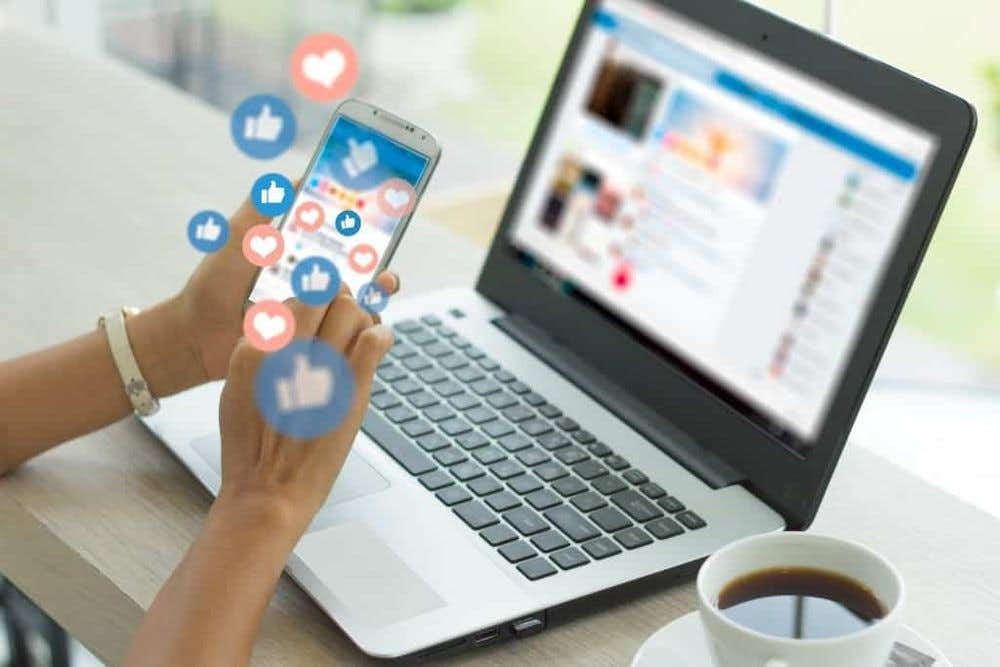October 5th, 2020

More people are talking about social media addiction and there are many so-called social media addiction facts floating around. As social media platforms have exponentially grown in recent years, particularly in expanding to all ages and for all “needs”, we now have platforms built for socializing, dating, businesses, and even mental health resources. What’s even more concerning, is they have now come out with dating apps for adolescents- scary, right?
As the presence of social media apps become stronger, research has been focused on the benefits and risks of engaging in such platforms and understanding the influence on new behaviors and connection. What feels most concerning is the existence of social media addiction that is seldom talked about and often reinforced.
Social media addiction is classified as a behavioral addiction where time spent thinking about social media is excessive with an uncontrollable urge to check social media platforms.
An individual may notice a variety of cognitive, emotional, behavioral, and physiological responses, such as feelings of relief and/or euphoria after engaging in social media; an increase in time spent preoccupied (emotionally, cognitively, and behaviorally) with social media, indicating a potential increase in tolerance; feelings of distress with or without physiological symptoms (fidgety, increase in heart rate, tearfulness, for example) when not engaging in social media.
Another key piece to consider is when the individual stops engaging in social media and later resumes, you may notice an immediate return to old behavior and consequential impairments.
It is not uncommon that during extinction you may notice an individual “replace” behavior, for instance: compulsive eating behaviors, excessive engagement with tv, gambling, other drug use, and over-exercising. Why? Research has shown that social media addiction produces a surge in dopamine due to the reward center part of our brain that gets activated with each like, comment, thumbs up, and retweet that is facilitated.
Each time our reward center gets activated and dopamine gets released, the behavior becomes reinforced and the brain wants more and more. Eventually, it will take more of that stimuli to activate the same level of dopamine and addiction persists.

One study found that on average, 10% of Americans have social media addiction, which is concerning as social media (in the context of lifespan) is not that old, yet has grown at exponential rates.
As the use of social media and like-minded platforms continue to grow with modern-day needs, researchers are finding more deficits this may cause to overall mental and physical health. Remember when social media didn’t even exist? Now we are so reliant on it for social, professional, and business needs it would be hard to fathom how to operate without it.
Technology develops at a rate well beyond human potential. If we don’t understand and adapt to its impact, we will not be able to set the appropriate boundaries and resources needed to manage it.
Social media addiction shown to be linked to disorders such as anxiety and depression has proven to show dramatic drops in self-worth, a decreased average number of genuine relationships in one’s life, more disruptive sleep patterns, less physical activity, and overall disruption to the immune health.
While the research is still considered young, consistent findings suggest the need for humans to interact differently with social media; it’s no coincidence you’re seeing social media platforms switch to emotional expression versus like/dislike. We are also learning a great deal about how social media addiction is being reinforced, and also mistreated.
The best question you can consider is, “How is my use of social media impacting my day-to-day life and overall quality of life?” For instance: do others ask you to put your phone down? Do your children comment that you’re never available? Do you ever miss or are late to activities because you were on social media? Are your children getting in trouble at school because of it?
Consider how it impacts essential needs as well: do you ever forget to eat because you are on your phone? Are you going to sleep later and/or waking up earlier to get on social media? How much time do you spend on social media vs. other daily activities?
If you are concerned about your social media use and are unsure if you are addicted, speaking to a trained professional is your best option. The goal is to not let the addiction grow and/or to be mindful of how your use in general is impacting your daily life.

Unlike most other addictions, it will be nearly impossible to completely eliminate the use of social media platforms from your life as it is often a requirement for your job or networking. It is a means to stay in touch with others in a modern-day world where travel and relocation are common.
Not everything is an addiction, but we want to be sure if you are having difficulty managing your use you have the appropriate treatment and support in place. Social media addiction often does not get discussed, acknowledged, or accepted, yet it is very real and just as harmful as other addictions.
If you know someone who may have social media addiction (even your own children), do not be afraid to explore this with them and seek professional support. It is never recommended for people to just “figure it out,” as we have to remember addiction is a disorder of the brain not an issue of willpower or social constructs.
At Clarity Clinic, we have highly trained staff who specialize in therapy and psychiatry services. To learn more about how we can support your mental health, call Clarity Clinic at (312) 815-9660 or schedule an appointment today.

Our Services
Virtual/Online CarePHP and IOPAdult PsychiatryChild & Adolescent PsychiatryAdult TherapyChild & Adolescent TherapyCouples CounselingFamily TherapyGroup TherapyPsychological TestingTranscranial Magnetic Stimulation (TMS)Resources
Refer a PatientCareersClinical Training OpportunitiesOur ProvidersFree Mental Health TestsCommonly Prescribed MedicationsLocationsBlogIn The NewsClarity Through CharityClarity for AllQuick Links
Patient PortalFAQsAccepted InsurancesContact us